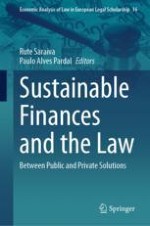2024 | OriginalPaper | Buchkapitel
The European “Fit for 55” Package and the Portuguese Tax Benefits System: Prospective Analysis and Reform Proposals
verfasst von : Filipe de Vasconcelos Fernandes
Erschienen in: Sustainable Finances and the Law
Verlag: Springer Nature Switzerland
Aktivieren Sie unsere intelligente Suche, um passende Fachinhalte oder Patente zu finden.
Wählen Sie Textabschnitte aus um mit Künstlicher Intelligenz passenden Patente zu finden. powered by
Markieren Sie Textabschnitte, um KI-gestützt weitere passende Inhalte zu finden. powered by
